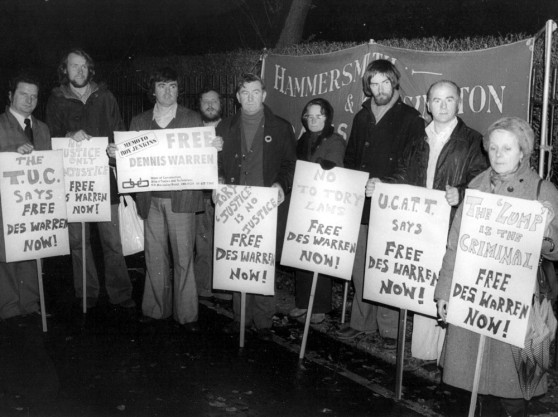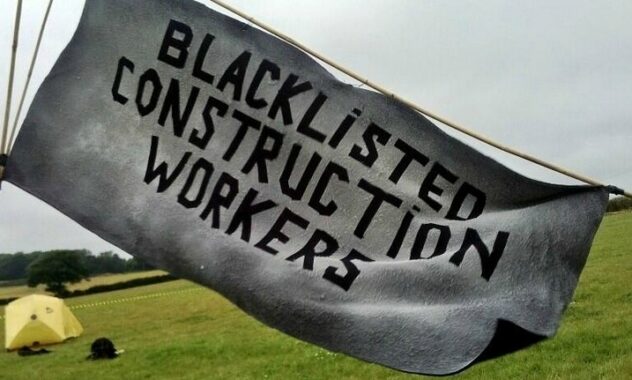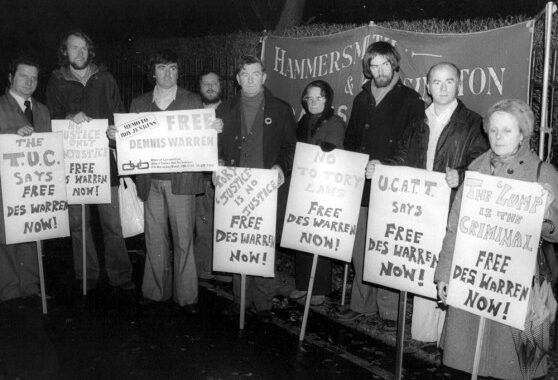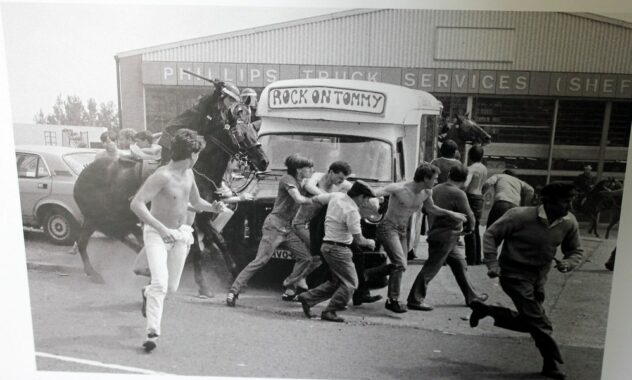Court of Appeal hears Shrewsbury 24 case
The Court will consider the argument that 24 innocent men were convicted after a lawful strike in a politically-motivated miscarriage of justice.

The Court of Appeal this week heard the case of 24 North Wales building workers who are seeking to overturn convictions they received for picketing in the 1970s.
The men, who have become known as the Shrewbsury 24, were arrested five months after taking part in the 1972 national building workers’ strike, at which police were in attendance and no complaints about the trade unionists were made. Indeed, action against the men was not taken until after then-Home Secretary, Robert Carr, instructed the police to investigate on the basis of a widely criticised report from the National Federation of Building Trade Employers.
Between them, the strikes were charged with 242 offences, including unlawful assembly, affray, intimidation, criminal damage and assault, although most of these charges were dropped at trial. Six received prison sentences, and 16 were given suspended prison sentences. They have always maintained their innocence.
Since 2006, The Shrewsbury 24 Campaign has been leading the fight for justice for the workers and currently represents 12 of the pickets. Last year, it succeeded in having their cases heard by the Criminal Cases Review Commission (CCRC), which had originally turned their application down, after the Campaign pushed for access to justice through the judicial review process. The CCRC referred the case to the Court of Appeal, where it was finally heard yesterday (03 February 2021) and today.
Eileen Turnball, the Campaign’s Researcher and Secretary has long been convinced the experiences of the men were a miscarriage of justice with a political motivation – to oppress trade unionism – and has found damning evidence against the authorities.
“I have visited every possible archive and library to obtain documents about the trials, including several trips to the National Archives at Kew,” she explained.
“I unearthed the evidence that the CCRC finally accepted as grounds to refer the convictions to the Court of Appeal. Firstly, I found a letter and memo written by West Mercia police showing that original witness statements had been destroyed by the police and this fact had not been disclosed to the defence counsel or the court.
“My second discovery was about the broadcast of a highly prejudicial documentary on ITV, Red under the Bed, which was shown on 13 November 1973, halfway during the first trial. I used a Freedom of Information request to obtain a Cabinet Office file about the film. It revealed that a covert agency within the Foreign Office, known as the Information Research Department, had made a significant contribution to the content of the programme.”
Unfortunately, several pickets have died during Eileen’s 15-year fight to have their cases heard. The cases of Des Warren, John McKinsie Jones, Ken O’Shea, Malcolm Clee, Michael Pierce, Terry Renshaw, Kevin Butcher, Bernard Williams, Alfred James, Roy Warburton, Graham Roberts and John Seaburg are those heard this week.
“We are looking forward to finally having our day in court to show that we were victims of a miscarriage of justice,” Terry Renshaw – who receieved a suspended sentence for unlawful assembly – said prior to hearing.
“Without the Shrewsbury 24 Campaign we would not be where we are today. We owe a great debt of thanks to them for the tireless work that they have carried out,” he added.
Frances O’Grady, General Secretary of the TUC, congratulated the Campaign on its tireless work, saying: “I am proud to send solidarity and support from the TUC and the whole of the trade union movement.”
“You have fought a long and dignified struggle to overturn the unjust prosecution of the Shrewsbury 24 – building workers who were fighting for basic rights at work. With insecurity, unsafe working conditions and blacklisting still a reality for millions of workers, your campaign remains hugely relevant today. After 47 years, it’s time for justice,” she said.
Harry Chadwick, the Campaign’s Chairperson, thanked the UK’s labour movement for tis “tremendous support”.
“Twenty-one national unions and hundreds of branches have affiliated to our Campaign,” he explained. “We will never forget the warm welcome and solidarity shown to us at the many events that we have travelled to during the past 15 years. On behalf of the pickets and campaign, a heartfelt thank you.”







